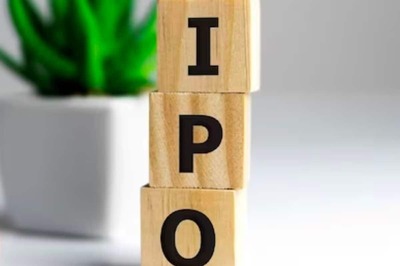
views
New Delhi: The Goods and Services Tax (GST) is set to raise the price of most agricultural inputs like seeds, pesticides and farm equipment, adding to the cost of production for farmers. Further, since the GST rates will be the same across the country, farmers will not be able to take advantage of inter-state price differentials.
The GST, which comes into effect on July 1, will replace most indirect taxes with a single, multi-tiered levy. The tax rates have been determined at 5%, 8%, 12% and 28%.
Abhijit Sen, a former member of the Planning Commission whose charge was Agriculture, told News18 that GST will increase the cost of agricultural inputs. “It is clear that the tax rate on the two main inputs – machinery and fertilizers – will go up, but it is not clear what happens to the maximum retail price (MRP). Will it get subsumed in the GST?"
Now consider the following inputs used in agriculture. The price of a 50 kg bag of Urea is set to go up from Rs 298 to Rs 334. Similarly, cost of other fertilizers like DAT and Potash will also go up. The former by Rs 224 and the latter by Rs 70.
Drip and sprinkler irrigation equipment, which currently attracts a VAT rate of 5%, will be taxed at 18% under GST. Similarly, the tax rate on pesticide sprayers has gone up from 6% to 18% and electric motors from 7% to 12%. Tractors will be taxed at a rate of either 12% or 28%, up from the current 5%.
"The government is saying that things will eventually get better after the first few months, but we have absolutely no confidence in politicians," Chengal Reddy, an advisor to the Consortium of Indian Farmers told News18.
Chengal Reddy said that even gunny bags, which are used to store and transport grain, will cost more, from Rs 18 to Rs 25.
"Farm inputs already attracted sales tax and excise, so although the GST rate will be higher it will only be marginally so," Govinda Rao, a former member of the Prime Minister's Economic Advisory Council.
Further, farmers are set to lose in another way. In the pre-GST system, they could hop across to another state if they found that a certain input was cheaper.
Om Prakash Jangad, a farmer leader from Sriganganagar in Rajasthan, told News18 that farmers in his district, which adjoins Punjab and Haryana, would go across to the latter state to purchase seeds because they were priced cheaper than in Rajasthan. However, since the GST rate will be the same throughout the country, this avenue will not be available to farmers to reduce their cost.
Moreover, under GST, agricultural commodities like grain, fruits, vegetables and milk will not be taxed. This should reduce prices, providing some relief for consumers. However, this may magnify the problem for farmers. Namely that their cost of production seems set to go up, but the final cost of the commodities seems set to fall. Who will compensate the farmers?




















Comments
0 comment